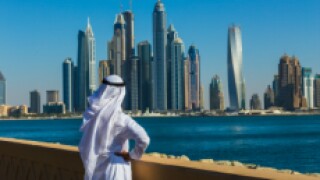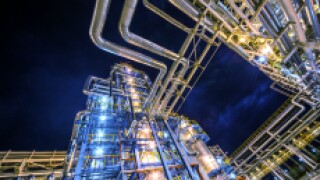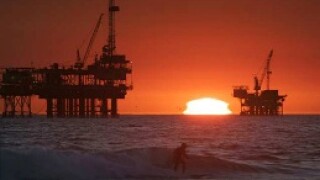Middle East Loans
-
The Gulf region was active for loans this week, with Emirates National Oil Co (Enoc) and Qatar National Bank heading towards completion.
-
The Gulf Cooperation Council region remains an area of activity for emerging market corporate loans this week, with Emirates National Oil Co (ENOC) closing in on a $1.5bn loan and Qatar National Bank in syndication on its $3bn deal.
-
The Gulf Cooperation Council region remains an area of activity for emerging market corporate loans this week, with Emirates National Oil Co (ENOC) closing in on a $1.5bn loan and Qatar National Bank in syndication on its $3bn deal.
-
Saudi Arabian Oil Company, otherwise known as Aramco, is seeking a $10bn revolving credit facility, fuelling speculation that it will buy its way into new markets.
-
Abu Dhabi’s National Petroleum Construction Co has closed a Dh2.2bn ($599m) eight year syndicated loan that includes an Islamic finance component.
-
Saudi Arabian Oil Company, otherwise known as Aramco, is in talks with banks as it seeks to replace an undrawn $4bn revolving credit facility with a much bigger $10bn financing.
-
Abu Dhabi’s National Petroleum Construction Co has closed a Dh2.2bn ($599m) eight year syndicated loan that includes an Islamic finance component.
-
Saudi Arabian Oil Company, otherwise known as Aramco, is in talks with banks as it seeks to replace an undrawn $4bn revolving credit facility with a much bigger $10bn financing.
-
Etisalat Egypt has agreed a $120m loan with two international banks.
-
On February 11, GlobalCapital held its annual Syndicated Loans and Leveraged Finance industry dinner and announced the winners of the Loan Awards 2014.
-
If the atmosphere at GlobalCapital’s annual Syndicated Loan and Leveraged Finance Dinner can be taken as any kind of barometer, then the loan market going into 2015 is in rude health.
-
Qatar National Bank this week mandated international banks for a $3bn loan, its first dollar facility since 2012.









